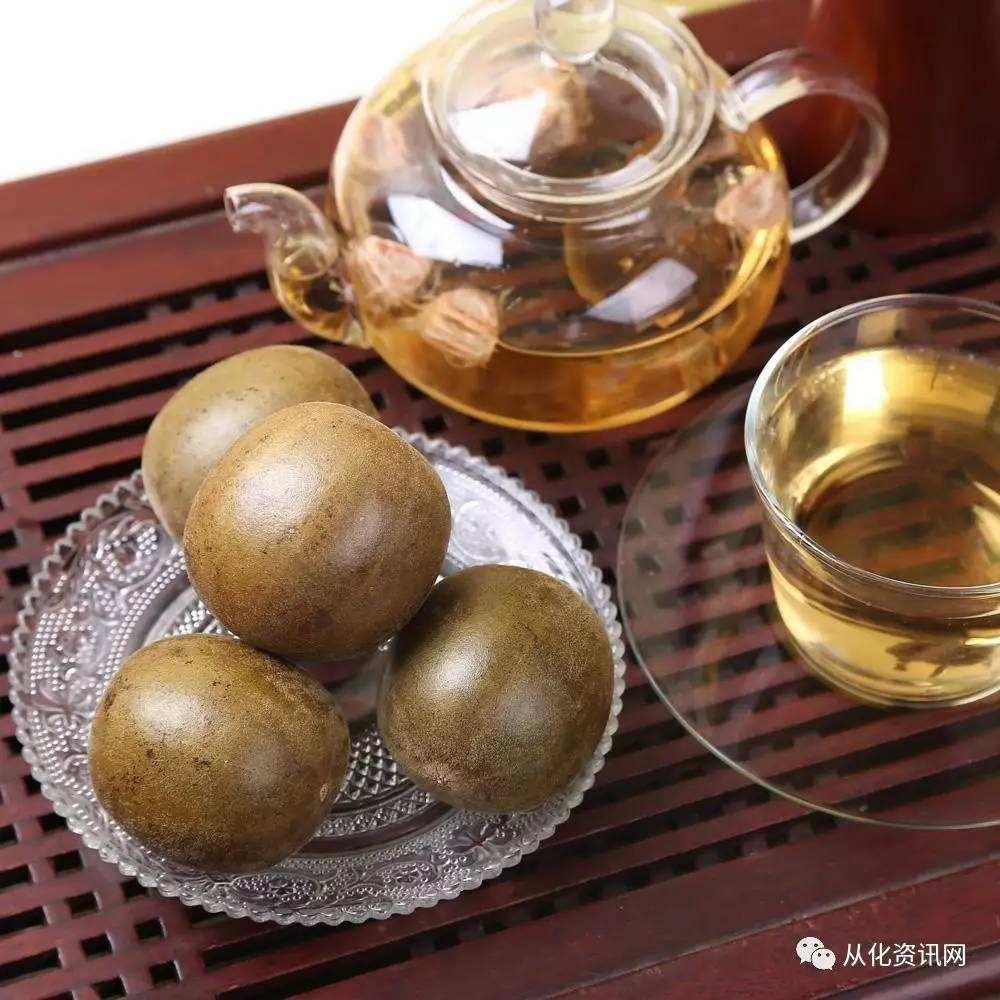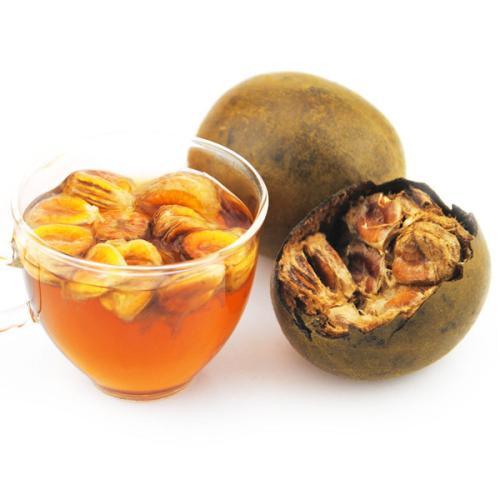Asian Herb Nourishing Lungs Dried Luo Han Guo / Monk Fruit. Cough tea for diabetics. Natural herbs for health and wellness.
-
Detail
Asian Herb Nourishing Lungs Dried Luo Han Guo/ Monk Fruit. Cough tea for diabetics. Ship From Mainland China. Natural herbs for health and wellness.
cough, sputum, asthma, bronchitis, pharyngitis, obesity, acute gastritis, and constipation,Cough tea for diabetics
NATURE - All natural; dried, sweet in taste and cold in nature;
It is reputedly good for treating sore throats, coughs, clearing internal heat and gastrointestinal problems.
EFFICACY - Effectively remove excess heat in the body;
SERVE - Can used to make tea or soup; Brew with boiling water
It has been shown in animal studies to decrease blood sugar, total cholesterol, and improve liver functionDescription:
Monk fruit is a deliciously sweet fruit that can be used as a healthy way to sweeten foods and beverages without all the added calories of sugar. In Asia monk fruit is a traditional food where it has been used for centuries as a low-calorie functional beverage and food ingredient.It is reputedly good for treating sore throats, coughs, clearing internal heat and gastrointestinal problems.Uses and Pharmacology:
In Chinese folk medicine, Luo Han Guo has been used for cough, sputum, asthma, bronchitis, pharyngitis, obesity, acute gastritis, and constipation. In traditional Chinese medicine, luo han guo has been used as a pulmonary demulcent and emollient for the treatment of dry cough, sore throat, and extreme thirst. It is also used as a plant-derived substitute for sucrose. The fruit is generally sold in dry form and is used in herbal teas and soups. Previous studies have revealed antiatherosclerotic effects and anticancer, antiallergy, and antidiabetic activity.Dosing:
Limited clinical data are available regarding use in humans. However, the fruit is consumed in normal amounts in the form of herbal teas or soups. The intended use of the sweetener PureLo is at a fraction of 1%, far lower than the 10% that constituted the highest level tested, and research with PureLo has shown it is aversive to humans at extremely high concentrations.History:
The name luo han guo or "monk fruit" might be derived from the belief that Buddhist monks were among the first people to cultivate this fruit; in Chinese culture, monk fruit is also associated with the saints that surround Buddha.Hossen 2005, Swingle 1941, Tsang 2001 The skin, flesh, and seeds of monk fruit are sweet and possess a unique taste. The fruit is usually boiled or simmered in water and consumed as an herbal tea or used in preparation of soups and stews.Swingle 1941 The fruit is traditionally associated with abundant health, and its uses as food by Asian populations in many parts of the world and in traditional Chinese medicine are well documented in Chinese historical literature.Botany:
The plant is native to southern China in the provinces of Guangxi, Guangdong, Guizhou, Hunan, Jiangxi, and in Northern Thailand.Swingle 1941 A synonym is Momordicaceae.Tips:
Part of the goods frequent replacement of packaging, such as goods and pictures are not exactly the same, please refer to the goods you receive. -
Customer ReviewsNo comments
 USD
USD




